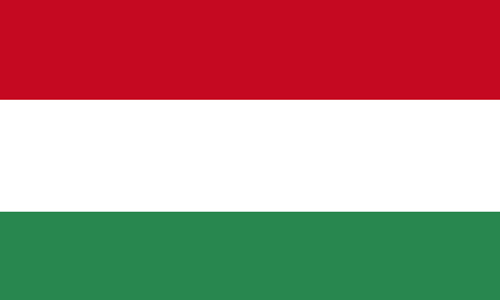(Last modified: 09.03.2020)
The newly established coronavirus committee of the Károli Gáspár University released the following orders in connection with the new COVID-19 epidemics:
• According to the Hungarian Consular Service traveling abroad may present a higher than normal risk, as the spread of the virus is unpredictable and may vary by country and change on a daily basis. Therefore, students/teachers/researchers/staff members are asked to carefully consider all up-to-date information on the coronavirus situation before traveling abroad. It is recommended to suspend travelling to affected areas („affected areas” are considered those countries, provinces, territories or cities experiencing ongoing transmission of COVID-19) or postpone all outgoing trips indefinitely, if possible. In addition all admission of incoming students and staff from affected areas shall also be suspended indefinitely. Information and recommendation on countries, provinces, territories or cities experiencing ongoing transmission of COVID-19 are listed both on the official Consular website of Hungary and on the WHO website.
• Opening hours of all Registrar’s Office are suspended indefinitely as of March 6 2020. Administrators of the Faculties and Institutes are available via email and by phone until further notice.
• All individuals who in the last 14 days have been to countries affected by the public transmission of the disease are obliged to stay in home quarantine for two weeks. It is advisable to self-monitor for symptoms of the coronavirus (fever, cough, sore throat or feeling under the weather), to seek medical care and inform their local health care providers, preferably by phone, of their travel history. Alternatively, The National Public Health Center (NPHC) has created two toll-free telephone numbers to respond quickly and professionally to public inquiries about the coronavirus 06-80-277-455 and 06-80-277-456. The hotlines are available 24 hours a day, 7 days a week.
Should a student decide to stay away from the university based on the above points (either voluntarily or on an obligatory basis), the absence will not be counted as part of the amount of allowed absence as defined in Article 53 of the Academic and Examination Regulations of the University.
We inform our teachers, researchers and staff members who, concerning the new coronavirus, decide to voluntarily quarantine themselves that the absence on the affected working days are justified, therefore there will not be any reductions in the monthly salary. Those who are quarantined by the national health care system, will get sick pay for the period spent in quarantine
• The installation of additional hand disinfectant stations is currently in progress at all university sites. The delivery and the placement of the units is underway.
• Besides the regular cleaning, the additional disinfection of handles, switches, rails, lift buttons, etc. has been included in the daily sanitation routine of the company responsible for the cleanliness of all university sites. Antibacterial liquid is used in place of disinfectant sprays due to a current shortage in supply, which is expected to be resolved within the coming two weeks.
• The cleaning company is obligated to use proven and certified disinfection methods in all wet rooms of the university.
• The cleaning company is obligated to take extra care of its staff and report any suspicious cases of illness to the university, including sending home any cleaning staff experiencing fever or influenza-like symptoms.
• The purchase of non-contact hand sanitiser stations are in progress. Until the arrival, we remind the university citizens to comply with the sanitary measures, including the avoidance of the community when sick. In addition we ask for the cooperation of all individuals who may have come into contact with someone or know of someone affected by the coronavirus in their community to remind them of the general recommendation of WHO and of NPHC.
International students and staff may contact the University’s International Office via email at This email address is being protected from spambots. You need JavaScript enabled to view it. to find out more about safety measures or in case they might have been infected.
How does COVID-19 spread?
The disease can spread from person to person through small droplets from the nose or mouth which are spread when a person with COVID-19 coughs or exhales. Most estimates of the incubation period for COVID-19 range from 1-14 days, most commonly around 5-6 days (2-12 days).
All information is based on the recommendations and specifications of the World Health Organization, the European Center for Disease Prevention and Control and the National Public Health Center, and will be updated in the event of any changes in the recommendations of these organizations.
The coronavirus committee of Károli Gáspár University
(Date: 05.03.2020)
Károli Gáspár University set up a committee to monitor the situation on the COVID-19 (coronavirus) situation and to inform their student and staff community about it.
Prime Minister Viktor Orbán announced on Facebook yesterday that the first two coronaviruses were reported in Hungary. The two students whom recently returned from a visit in Iran, are currently hospitalised at St. László Hospital. In light of this development the University requests all students and staff to take extra precaution in public and follow hygiene and sanitation guidelines at all times.
WHO provides updated recommendations for international traffic in relation to the COVID-19 outbreak, in light of the rapidly evolving situation, in addition the latest updates of the National Public Health Center (NPHC) can be read at www.nnk.gov.hu.
It is prudent for all individuals to follow general recommendations for personal hygiene and international travelling in order to minimise risks.
Frequent and proper hand hygiene is one of the most important prevention measures for COVID-19. Guidelines of adequate sanitation and hygiene are available on the official website of WHO and NPHC:
In view of the evolution of the epidemic phenomenon linked to the spread of the coronavirus infection, the University suspended all outgoing trips of students and foreign missions to the affected areas published by the WHO, especially in the newly reported areas of northern Italy.
Those who are still planning travel to affected regions should seek advice on the potential hazards in their chosen destinations and understand how best to protect their health and minimize the risk of acquiring disease.
Information and recommendation on countries, provinces, territories or cities experiencing ongoing transmission of COVID-19 are listed both on the official Consular website of Hungary and on WHO.
Travellers returning from affected areas should self-monitor for symptoms for 14 days and follow national protocols. If symptoms occur, such as fever, or cough or difficulty breathing, travellers are advised to contact local health care providers, preferably by phone, and inform them of their symptoms and their travel history.
International students and staff may contact the University’s International Office via email at This email address is being protected from spambots. You need JavaScript enabled to view it. to find out more about safety measures or in case they might have been infected.
The University appeals for the cooperation of all students and staff in reporting any potential coronavirus cases to the authorities as outlined on the website of NPHC and of WHO.
What is COVID-19?
COVID-19 is the infectious disease caused by the most recently discovered coronavirus. This new virus and disease were unknown before the outbreak began in Wuhan, China, in December 2019.
What are the symptoms of COVID-19?
The most common symptoms of COVID-19 are fever, tiredness, and dry cough. Some patients may have aches and pains, nasal congestion, runny nose, sore throat or diarrhoea. These symptoms are usually mild and begin gradually. Most estimates of the incubation period for COVID-19 range from 1-14 days, most commonly around five days.
All information is based on the recommendations and specifications of the World Health Organization, the European Center for Disease Prevention and Control and the National Public Health Center, and will be updated in the event of any changes in the recommendations of these organizations.


